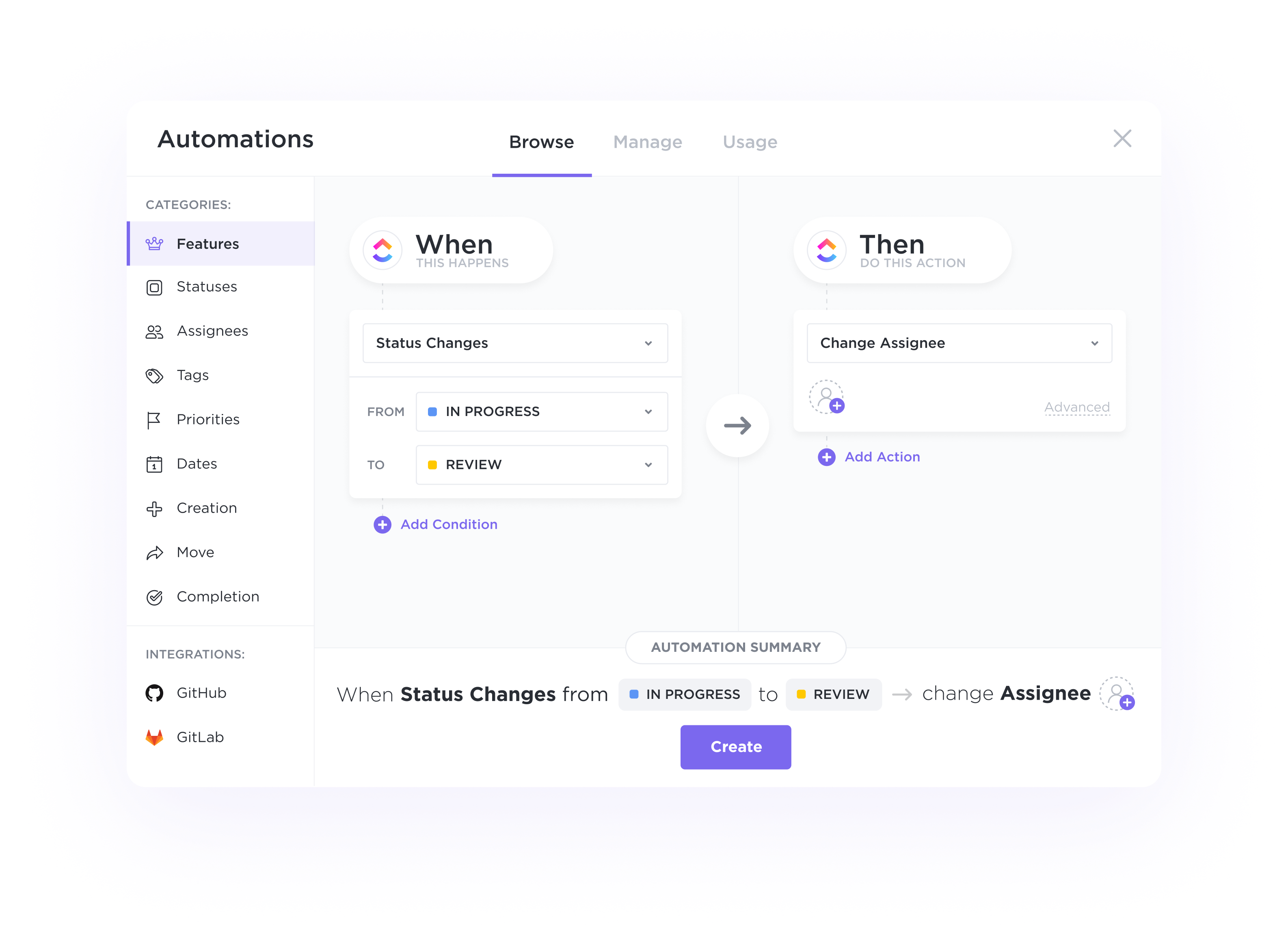Automate handoffs, status updates, and more.
Automatically assign tasks for each stage of your pipeline, trigger status updates based on activity, and switch priorities to alert your team on where to focus next.

Streamline your customer interactions and boost sales with ClickUp's tailored CRM system for Chemical Manufacturers. Manage leads, track interactions, and drive revenue all in one place. Say goodbye to scattered data and missed opportunities - supercharge your business with ClickUp today.
Free forever.
No credit card.
Trusted by the world’s leading businesses
Automatically assign tasks for each stage of your pipeline, trigger status updates based on activity, and switch priorities to alert your team on where to focus next.

Manage everything from sales pipelines, customer engagement, and orders with ClickUp's 10+ highly flexible views. Easily track and manage your accounts on a List, Kanban Board, Table view, and more.

Lead Tracking and Qualification: CRMs can help chemical manufacturers capture leads from trade shows, online inquiries, or referrals. The system can score these leads based on criteria like industry relevance or project size, allowing sales teams to prioritize follow-ups and nurturing efforts effectively.
Pipeline Management: By visualizing the sales pipeline, CRMs provide a clear overview of potential deals in various stages of the sales process. This helps sales teams focus on opportunities that are more likely to convert, ensuring efficient use of resources and timely follow-ups.
Sales Forecasting: Leveraging historical data on sales cycles and customer behavior, CRMs can generate forecasts for future sales trends in the chemical manufacturing industry. This insight helps in setting realistic targets, allocating resources efficiently, and planning for growth.
Ticketing System: A CRM ticketing system can streamline customer issue resolution by categorizing and assigning tickets to the appropriate support agents. This ensures that customer inquiries or complaints are addressed promptly, enhancing overall satisfaction and retention rates.
Customer Self-Service: Providing a self-service portal within the CRM allows chemical manufacturers' customers to access FAQs, product guides, or troubleshooting resources independently. This empowers customers to find solutions to common queries quickly, reducing the workload on support teams.
Feedback Collection and Management: CRMs can centralize feedback received from customers, whether through surveys, emails, or social media. By organizing and analyzing this feedback, chemical manufacturers can identify areas for improvement, address recurring issues, and enhance product or service quality based on customer insights.
Centralized Database: Maintaining a centralized CRM database of accounts and contacts in the chemical manufacturing sector ensures that all team members have access to up-to-date information about customers, suppliers, or partners. This enables personalized communication, targeted marketing campaigns, and a holistic view of each business relationship.
Interaction Tracking: CRM systems can log all interactions with accounts and contacts, including emails, calls, meetings, or transactions. This comprehensive view of customer engagement history allows sales and support teams to understand each customer's preferences, needs, and past interactions, fostering stronger relationships and more effective communication.
Relationship Mapping: By mapping relationships between different contacts within a chemical manufacturing account, CRMs can reveal complex networks of influence or decision-making. This information is invaluable for account-based marketing strategies, identifying key stakeholders, and tailoring communication to specific roles or departments within a customer organization.
Key features of CRM software for chemical manufacturers include inventory management for raw materials and products, tracking of compliance regulations, integration with supply chain partners, handling of complex pricing structures, and management of customer relationships for B2B sales and service.
CRM software can help chemical manufacturers streamline sales and marketing processes by efficiently managing customer relationships, automating sales pipelines, tracking leads and opportunities, and analyzing data to improve targeting and customer engagement.
Yes, there are CRM software solutions tailored specifically for the unique needs and challenges of chemical manufacturers, offering industry-specific features like batch tracking, compliance management, inventory control, and supply chain integration.